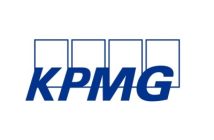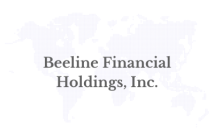Growing emphasis seen on sustainability, investor protection and technology
HONG KONG SAR – Media OutReach – 30 September 2022 – Policymakers are responding to the emerging geopolitical and economic landscape by reviewing regulatory approaches and priorities, KPMG says in its recent report “Navigating uncertainty – Evolving Asset Management Regulation”. The report also noted that Hong Kong, a city that boasts an abundance of asset management institutions, is steering through this regulatory evolution, which is placing a stronger emphasis on sustainability, investor protection, and the embrace of technology.
Andrew Weir, Regional Senior Partner, Hong Kong and Global Chair, Asset Management and Real Estate, KPMG, says “Just as regulators and industry were adjusting to the ‘new reality’ we outlined in last year’s report, the geopolitical and economic landscape is again undergoing major change. Policymakers are responding to developments and reviewing regulatory approaches and priorities. All stakeholders need to navigate the widespread uncertainty.”
Since the 2021 Glasgow COP 26 summit, momentum has continued to build around sustainable finance initiatives as investor demand increases, the report said. KPMG believes, initiatives to increase corporate reporting, which will improve information flow to asset managers, and promote greener capital markets, are gathering pace. Asset managers need to implement a complex range of new requirements while meeting the evolving expectations of their clients.
Hong Kong regulators, meanwhile, are changing their overall approach to investor protection as well as amending specific rules. The Securities and Futures Commission (SFC) has proposed extending the scope of its enforcement powers to bolster investor protection and requiring compensation of investors under certain circumstances.
Bonn Liu, Regional Head of Asset Management (ASPAC), KPMG in China, says: “Policymakers are striking a balance between expanding the available range of products to retail investors, like allowing for alternative assets and strategies to assist economic recovery, while recalibrating their approaches to investor protection in an increasingly digital world.”
The SFC has issued new rules requiring more than 1,800 fund managers to consider climate-related risks in their investment and risk management processes. This regulation adopts a two-tier approach, including a baseline set of requirements for all fund managers managing collective investment schemes, and an “enhanced requirements” that applies to fund managers with asset under management greater than HKD 8 billion. In addition, the securities and futures markets watchdog has provided additional guidance on disclosures and reporting for authorized funds that incorporate ESG factors and for funds with a climate-related focus.
Meanwhile in China, the government continues to open its capital markets to both domestic and foreign firms. Part of such effort involves deepening the mutual stock market access between Mainland China and Hong Kong (“Stock Connect”) and the prompt development of both capital markets. The China Securities Regulatory Commission (CSRC) and the SFC agreed in principle on the inclusion of eligible exchange-traded funds (ETFs). China and Hong Kong exchanges in Stock Connect, the trading of which commenced in July 2022.
The CSRC has published new rules standardizing the framework for public pension investments and allowing Chinese investors to purchase pension funds that meet certain eligibility and size criteria. As part of a program to increase the scope of regulation and to promote investor protection, the Chinese authorities introduced various changes that impact the structure of derivatives markets and market participants.
New requirements have been introduced for China’s derivatives market relating to investor suitability, risk disclosure, control and transaction reporting. Supervision of China’s national futures market will be centralized and cross-border futures trading will be allowed for the first time. The requirements relating to total return swap transactions have also been updated and broadened.
Hashtag: #KPMG
The issuer is solely responsible for the content of this announcement.
About KPMG China
KPMG China has offices located in 30 cities with over 14,000 partners and staff, in Beijing, Changchun, Changsha, Chengdu, Chongqing, Dalian, Dongguan, Foshan, Fuzhou, Guangzhou, Haikou, Hangzhou, Hefei, Jinan, Nanjing, Nantong, Ningbo, Qingdao, Shanghai, Shenyang, Shenzhen, Suzhou, Taiyuan, Tianjin, Wuhan, Xiamen, Xi’an, Zhengzhou, Hong Kong SAR and Macau SAR. Working collaboratively across all these offices, KPMG China can deploy experienced professionals efficiently, wherever our client is located.
KPMG is a global organization of independent professional services firms providing Audit, Tax and Advisory services. KPMG is the brand under which the member firms of KPMG International Limited (“KPMG International”) operate and provide professional services. “KPMG” is used to refer to individual member firms within the KPMG organization or to one or more member firms collectively.
KPMG firms operate in 144 countries and territories with more than 236,000 partners and employees working in member firms around the world. Each KPMG firm is a legally distinct and separate entity and describes itself as such. Each KPMG member firm is responsible for its own obligations and liabilities.
KPMG International Limited is a private English company limited by guarantee. KPMG International Limited and its related entities do not provide services to clients.
In 1992, KPMG became the first international accounting network to be granted a joint venture licence in mainland China. KPMG was also the first among the Big Four in mainland China to convert from a joint venture to a special general partnership, as of 1 August 2012. Additionally, the Hong Kong firm can trace its origins to 1945. This early commitment to this market, together with an unwavering focus on quality, has been the foundation for accumulated industry experience, and is reflected in KPMG’s appointment for multidisciplinary services (including audit, tax and advisory) by some of China’s most prestigious companies.





